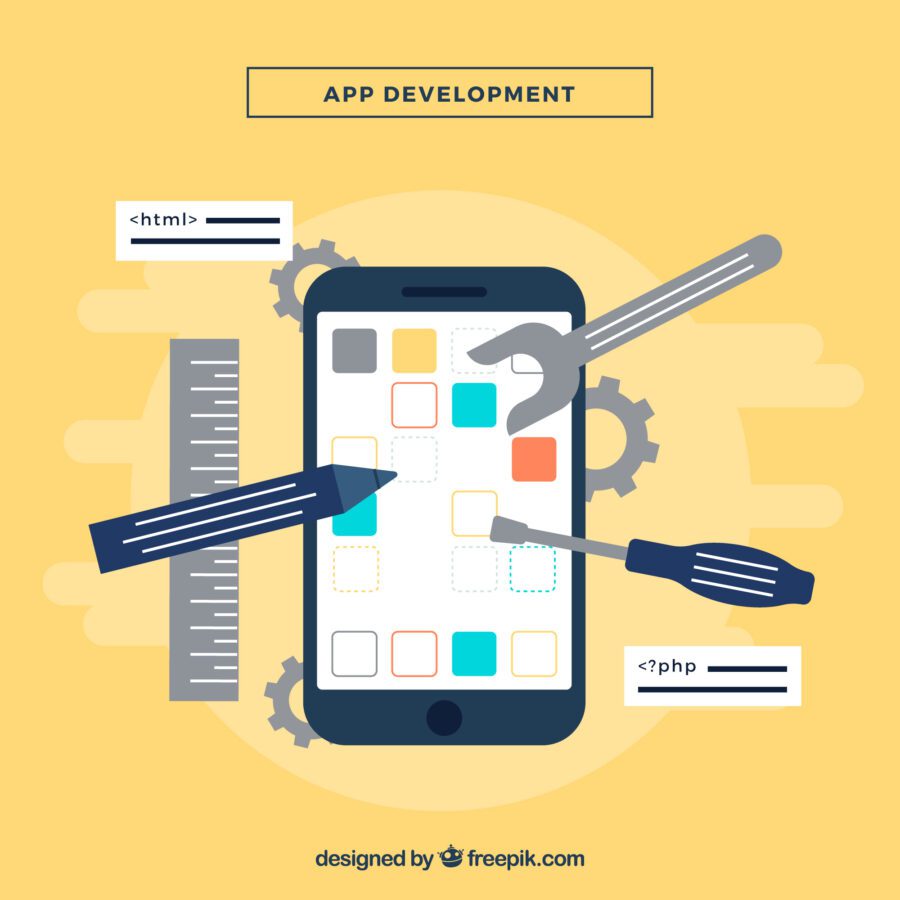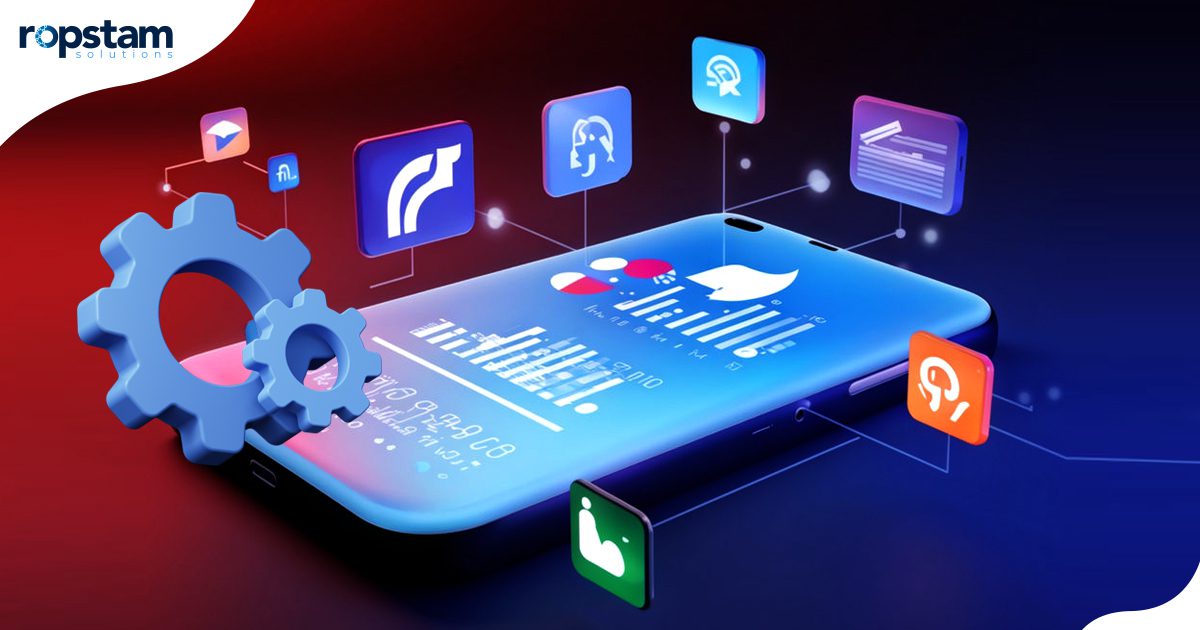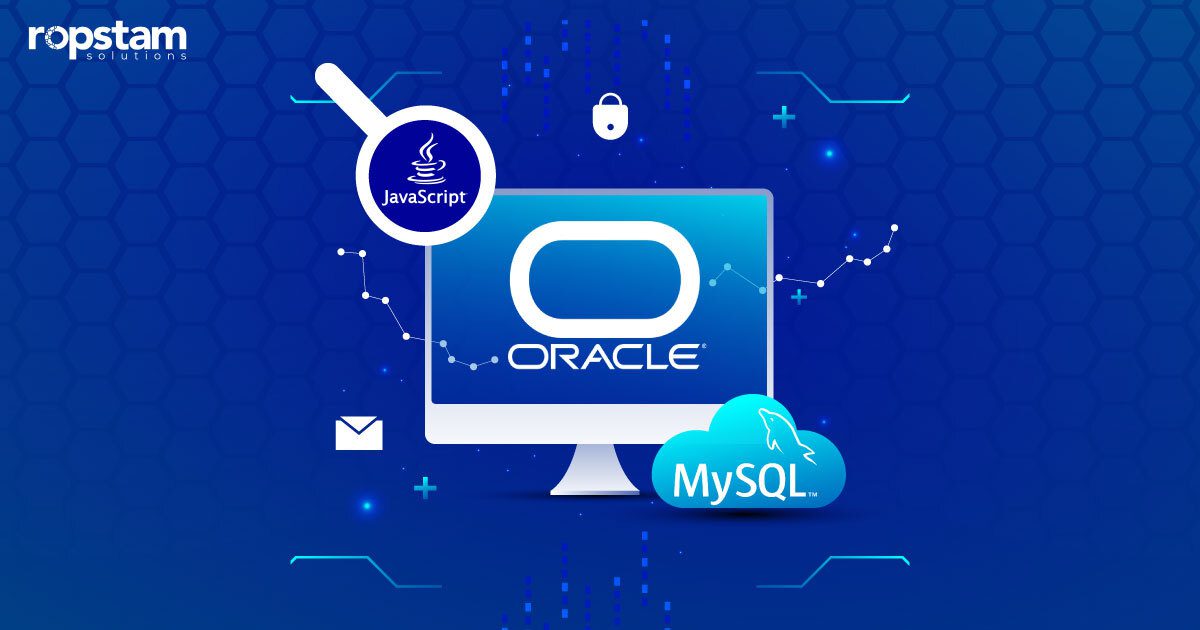Backend frameworks for mobile app development are essential tools that provide a structured foundation for building the server-side components of mobile applications. These frameworks offer pre-built modules, libraries, and tools that handle data processing, business logic, and communication between the mobile app and the server.
There are some backend frameworks for mobile application development are better than others, with the two main differentiators being scalability and performance. Other primary factors that differentiate the frameworks include language, syntax, ease of use, community support, and compatibility with your chosen mobile platform. Your decision of selecting the right framework must be made upon these and some other factors that will shape the future of your mobile app.
Some of the best backend frameworks for mobile application development include Django for its solid RESTful API capabilities, Laravel thanks to its database integration and robust security features, and Flask for being lightweight and minimalistic.
There are multiple other popular backend frameworks for mobile app development which are best for multiple reasons, which we will discuss in this comprehensive guide.
- Django
- Laravel
- Flask
- FastAPI
- Spring Boot
- CakePHP
- Phoenix
- ASP.NET Core
- Ruby on Rails
- Express.js
1. Django
Django is a high-level Python web framework that encourages rapid development and clean, pragmatic design. For mobile app developers, Django offers a robust backend solution with its “batteries included” philosophy. Its ORM, admin interface, and built-in security features significantly speed up development.
Django’s RESTful API capabilities make it ideal for creating powerful backends that can efficiently serve mobile applications, ensuring scalability and maintainability.
Features of Django:
- ORM (Object-Relational Mapping)
- Built-in admin interface
- URL routing
- Template engine
Pros of Django:
- Robust security features
- Scalable architecture
- Extensive documentation
- Large community support
Cons of Django:
- A steep learning curve for beginners
- The monolithic structure can be overkill for small projects
- Slower than some lightweight frameworks
- Less flexibility in project structure
2. Laravel
Laravel is an elegant PHP framework known for its expressive syntax and modern toolkit. Mobile app developers can greatly benefit from Laravel’s effortless database integration, eloquent ORM, and robust security features.
Its RESTful routing and built-in authentication system simplify API development for mobile apps. Laravel’s ecosystem, including tools like Passport for OAuth2 server implementation, makes it an excellent choice for creating secure and efficient mobile app backends.
Features of Laravel:
- Eloquent ORM
- Blade templating engine
- Artisan CLI
- Built-in authentication
Pros of Laravel:
- Elegant syntax and easy to learn
- Excellent documentation
- Strong security features
- Active ecosystem with many packages
Cons of Laravel:
- Frequent updates may require constant adaptation
- Overkill for simple applications
- Potential over-reliance on Laravel-specific tools
3. Flask
Flask is a lightweight, flexible Python web framework but it can be used for backend of mobile applications. Its minimalist approach allows mobile app developers to build custom backends tailored to specific needs. Flask’s simplicity doesn’t compromise power; it integrates well with various extensions for added functionality.
For mobile apps requiring a lean, fast backend with precise control over components, Flask provides an ideal solution. Additionally, its easy learning curve and extensive documentation make it accessible for developers of all levels.
Features of Flask:
- Integrated unit testing
- RESTful request dispatching
Pros of Flask:
- Lightweight and flexible
- Easy to get started
- A minimalist approach allows for customization
- Great for microservices and APIs
Cons of Flask:
- Lacks built-in ORM
- No admin interface out of the box
- Limited built-in features compared to full-stack frameworks
- Requires more manual configuration
4. FastAPI
FastAPI is a modern, fast, high-performance Python web framework for building APIs. Its speed and automatic API documentation are particularly valuable for mobile app developers.
FastAPI’s asynchronous capabilities ensure efficient handling of concurrent requests, which is crucial for responsive mobile apps. Not to mention that its built-in validation, serialization, and OpenAPI support enhance the process of creating robust, well-documented APIs that mobile apps can reliably consume, making it an ideal choice for mobile app developers.
Features of FastAPI:
- Automatic API documentation
- Asynchronous support
- Dependency injection
Pros of FastAPI:
- Very high performance
- Easy to learn and use
- Built-in API documentation with Swagger UI
- Strong type checking
Cons of FastAPI:
- Relatively new, smaller community
- Fewer third-party extensions compared to mature frameworks
- Primarily focused on API development
- May require additional tools for full-stack development
5. Spring Boot
Spring Boot, part of the larger Spring ecosystem, is a Java-based framework that simplifies the development of stand-alone, production-grade applications. For mobile app developers, Spring Boot offers a powerful backend solution with its auto-configuration and embedded server capabilities.
Add the fact that its excellent support for microservices architecture allows for scalable and modular backend systems. Also, Spring Boot’s extensive integration options and security features make it ideal for enterprise-level mobile applications.
Features of Spring Boot:
- Auto-configuration
- Embedded server
- Actuator for application insights
- Spring Security integration
Pros of Spring Boot:
- Excellent for microservices architecture
- Robust and scalable
- Large ecosystem of modules
- Strong enterprise support
Cons of Spring Boot:
- Steep learning curve
- Can be complex for simple applications
- Large memory footprint
- Slower startup time compared to lightweight frameworks
6. CakePHP
CakePHP is a rapid development framework for PHP that provides a flexible architecture for developing, maintaining, and deploying applications. Mobile app developers appreciate CakePHP for its convention over configuration approach, which speeds up development.
Its built-in ORM, security features, and caching system make it efficient for creating robust mobile app backends. It is pertinent to mention here that its flawless database interaction and RESTful API support facilitate smooth communication between mobile apps and servers.
Features of CakePHP:
- ORM with active record pattern
- Built-in validation
- Security components (CSRF, XSS protection)
- Caching system
Pros of CakePHP:
- Convention over configuration saves development time
- Comprehensive documentation
- Built-in security features
- Easy database interaction
Cons of CakePHP:
- Performance can be slower than other PHP frameworks
- Less flexible for unconventional project structures
- Smaller community compared to Laravel or Symfony
7. Phoenix
Phoenix is a web framework written in Elixir, leveraging the Erlang VM known for building low-latency, fault-tolerant systems. For mobile app developers, Phoenix offers real-time capabilities out of the box, making it excellent for apps requiring live updates or chat features.
The high concurrency and scalability of this powerful framework ensure backends can handle large numbers of simultaneous mobile users efficiently. Not to mention that its productivity and performance make it a strong choice for demanding mobile applications.
Features of Phoenix:
- Real-time capabilities with channels
- Built-in testing tools
- Hot code reloading
Pros of Phoenix:
- Excellent performance and scalability
- Great for real-time applications
- Fault-tolerant architecture
- Productive development environment
Cons of Phoenix:
- Steep learning curve for Elixir language
- Fewer job opportunities compared to other languages
- Limited hosting options
8. ASP.NET Core
ASP.NET Core is a cross-platform, high-performance framework for building modern, cloud-based, Internet-connected applications. Mobile app developers benefit particularly from its robust performance, especially in microservices architectures.
ASP.NET Core’s compatibility with various front-end frameworks and built-in dependency injection makes it versatile for different mobile app needs.
Features of ASP.NET Core:
- Cross-platform support
- Built-in dependency injection
- Razor Pages for server-side UI
- Kestrel web server
Pros of ASP.NET Core:
- High performance
- Strong typing and compile-time checks
- Excellent for microservices
- Good integration with Microsoft technologies
Cons of ASP.NET Core:
- Steeper learning curve for non-.NET developers
- Can be resource-intensive
- Rapid release cycle may require frequent updates
9. Ruby on Rails
Ruby on Rails, often simply called Rails, is a server-side web application framework written in Ruby. It’s valued by mobile app developers for its convention over configuration philosophy, which accelerates backend development. Rails’ Active Record ORM simplifies database operations, while its MVC architecture promotes organized code.
Furthermore, the framework’s extensive gem ecosystem and RESTful design principles make it efficient for creating feature-rich, scalable backends for mobile applications.
Features of Ruby on Rails:
- Active Record ORM
- Action Mailer for email services
- Asset pipeline
- MVC architecture
Pros of Ruby on Rails:
- Rapid development with convention over configuration
- Large ecosystem of gems
- Great for prototyping
- Strong community support
Cons of Ruby on Rails:
- Performance issues with large-scale applications
- Boot time can be slow for large projects
- Opinionated nature can be restrictive
- Version upgrades can be challenging
10. Express.js
Express.js is a minimal and flexible Node.js web application framework that provides a robust set of features for web and mobile applications. Its lightweight nature makes it popular among mobile app developers for building fast, scalable APIs.
The middleware-based architecture offered by Express.js allows for easy customization and extension of functionality. Not to mention that its compatibility with various databases and templating engines, coupled with excellent performance, makes it a go-to choice for creating efficient mobile app backends.
Features of Express.js:
- Middleware support
- Routing
- Template engine support
- Static file serving
Pros of Express.js:
- Lightweight and flexible
- Easy to learn and use
- Great performance
Cons of Express.js:
- Minimal structure can lead to disorganized code in large projects
- No built-in ORM
- Requires manual setup for many features
- Asynchronous programming can be challenging for beginners
How to choose a backend framework to support mobile app development?
When it comes to selecting the ideal backend framework for mobile app development, the power is in your hands. This step is very crucial for the success of your mobile app. Here are five key criteria to consider when choosing a backend framework for your mobile app project:
1. Scalability and performance
Your chosen framework should be able to handle increasing user loads and data volumes as your app grows. Look for frameworks that offer efficient resource management, caching mechanisms, and the ability to scale horizontally. Consider how well the framework performs under high concurrency and if it supports asynchronous processing. Frameworks like Django, Spring Boot, and Phoenix are known for their excellent scalability.
2. Language and ecosystem compatibility
Select a framework that aligns with your team’s expertise and the mobile platform you’re targeting. For instance, if you’re developing an iOS app, a framework that integrates well with Swift might be advantageous. Also, consider the ecosystem around the framework – a rich set of libraries and tools can significantly speed up development.
Ruby on Rails and Laravel, for example, boast extensive ecosystems with numerous plugins and packages.
3. API development and integration capabilities
Since mobile apps heavily rely on APIs, choose a framework that excels in API development. Look for features like built-in RESTful routing, JSON handling, and easy integration with popular API protocols. Frameworks like FastAPI and Express.js are particularly strong in this area, offering straightforward ways to create and document APIs.
4. Security features
Mobile apps often handle sensitive user data, making security a top priority, especially with cybercriminals becoming more intelligent. Therefore, you must evaluate the security features offered by your selected framework, such as built-in protection against common vulnerabilities (e.g., CSRF, XSS), encryption support, and authentication mechanisms. Django and ASP.NET Core are known for their robust security features out of the box.
5. Community support and documentation
A strong community and comprehensive documentation can be invaluable, especially when you encounter challenges during development. Frameworks with active communities offer more resources, third-party packages, and quicker problem-solving. Additionally, good documentation speeds up the learning process and helps in efficient troubleshooting.
Laravel and Spring Boot are examples of beneficial frameworks with excellent documentation and vibrant communities.
Why use backend frameworks for mobile app development?
While frontend technologies are crucial for building attractive user interfaces, backend frameworks are regarded as the unsung heroes of mobile app development, empowering developers to create scalable applications without reinventing the wheel. These tools provide a solid foundation for handling server-side logic, data management, and API interactions, allowing mobile developers to focus on creating exceptional user experiences.
By utilizing the power of backend frameworks, developers can significantly reduce development time, ensure better code organization, and implement industry-standard security practices with ease. For mobile app developers looking to stay competitive in a fast-paced market, backend frameworks are not just convenient—they’re pivotal for building efficient and future-proof applications that can grow alongside user demands and technological advancements.
Which backend framework is most used for mobile app development?
The most used backend framework for mobile app development is Laravel, according to Statistics & Data report. Laravel is a well-esteemed framework due to multiple reasons including its large community, ease of access, and support for MVC architecture. Laravel is the leading PHP framework also because of its ability to easily interact with any relational databases and app deployment tools.
Other reasons for Laravel popularity as a backend framework for mobile development are that Laravel simplifies authentication with built-in access management tools, which can be leveraged in mobile app development through APIs.
Additionally, Laravel offers smooth API integrations with major mailing services, enabling easy notifications and mailing. This applies equally to web and mobile backends. Moreover, Laravel provides memory caching, which can be used in mobile applications, with tools like Redis and Memcached via a built-in file cache driver.
Which JavaScript backend frameworks are best for mobile app development?
We have compiled a list of the most popular JavaScript-based backend frameworks for mobile application development with the expertise of our JavaScript developers to make your life. Whether you’re a seasoned mobile app developer or new to this field, these frameworks will help you stay ahead of the curve in the ever-competitive digital marketplace:
- Express.js
- Nest.js
- Koa.js
- Hapi.js
- Meteor.js
What is the difference between backend programming language and backend framework for mobile app development?
Here are the main differences between backend programming language and backend framework for mobile application development:
Backend programming language
Backend programming languages, with reference to mobile application development, form the backbone of server-side mobile apps, database interactions, managing logic, and server configuration. They work behind the scenes to deliver essential functionality that users rely on for a perfect experience, even though it’s not directly visible to them.
Backend framework
A backend framework, from mobile app development point of view, is a set of tools, libraries, and standards that assist developers in building mobile applications faster and more efficiently. It offers the architecture and structure needed to access databases, handle client requests, and organize the app’s business logic.
With a backend framework, mobile app developers can concentrate on building app functionality and features without the need to manage request processing and other technical intricacies.
Partner with Ropstam Solutions for your next mobile app development project
A powerful backend is extremely pertinent to support the development of any mobile application. Instead of manually writing and rewriting lines of code, backend frameworks can help you enhance and accelerate the development process. With so many options available, you must choose the ideal backend framework by evaluating certain factors to ensure the success of your project.
Got a mobile app development project in mind but don’t know where to start? At Ropstam Solutions, we have a team of dedicated mobile app developers skilled in multiple languages and frameworks.
Boasting years of experience in this field, our team of award-winning mobile app developers is ready to help you with your next project. Don’t hesitate to give us a call at +1 (866) 631-8767 or send us an email today at info@ropstam.com for a quick consultation.















